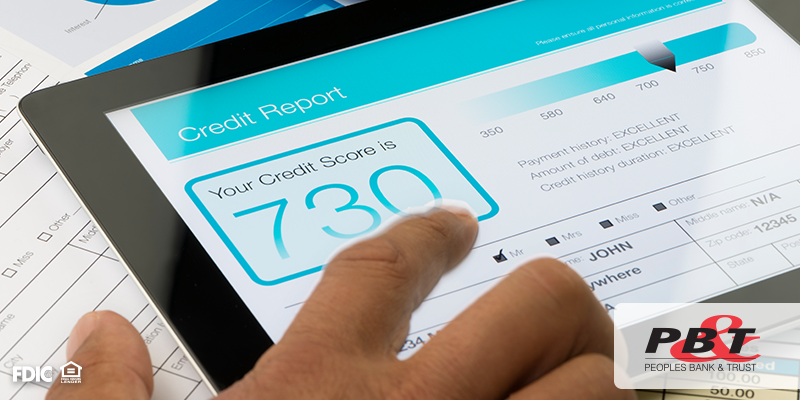
Now that you can pay for a taxi ride through your phone, order household essentials with the click of a button, and easily pay all your bills online, it’s becoming increasingly easy to depend on the internet for your financial transactions. At Peoples Bank & Trust, we want to shed some light on the various myths surrounding the use of debit cards online. With this information you can keep your information safe and secure while utilizing the latest fintech solutions:
Myth #1: It’s best to use your debit card online to pay for things.
Fact: While debit cards certainly have the capability of use for online purchases, other payment options such as credit cards, offer more advanced security safeguards and a decreased liability for the consumer.
We recommend using your debit card for any in-store purchases and utilizing one credit card for any transactions completed through the internet. This method ensures that should an online purchase become compromised, the safety of your savings, checking, and other bank accounts will remain secure while the credit card company eliminates any unwanted purchases within your account.
Myth #2: Wifi networks, like those found in coffee shops and hotel lobbies, are typically safe to use.
Fact: Many times cyber criminals target these hot spots by searching for potential victims to hack into through the use of a false wifi portal.
To avoid this circumstance, we suggest asking an employee of the establishment to verify the wifi network name and the associated password. In addition to this, it is always best to stick to non-personal sites, and avoid credit card and banking logins, while on public wifi.
Myth #3: If my debit card gets compromised, I will automatically get my funds back.
Fact: Because the funds are yours, the bank acts as a third party to help you file reports and maximize your chance of getting those funds back. However, there is no guarantee of recouping that money if you’re past certain timelines.
The sooner you report a card as lost or stolen, the less liable you are for unauthorized transactions. According to the Federal Trade Commission, if you report the card within two days of learning of its theft or loss, you are only liable for up to $50. However, if you wait up to 59 days after your bank statement is sent to you, you could be liable for up to $500. After 60 days, if the card in question has not been reported, you may be liable for the entire missing amount. To prevent this, we recommend reporting any loss or theft of your debit card as quickly as possible to reduce the potential damage to your personal finances.
After clarifying some common myths about debit card safety, we hope you will be inspired to become a safe shopper both online and offline. Whether you’re curious on how to best use your mobile banking or need to report a lost debit card, our dedicated team at Peoples Bank & Trust is always here to help! Drop us a line or stop by today.
Peoples Bank & Trust Co.
Member FDIC
Equal Housing Lender





